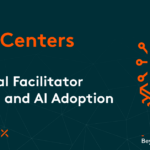Engel drew parallels between the recent shift to a knowledge worker-based industrial revolution and highlighted how financial services firms are focusing on three primary use cases:
- reducing costs,
- enhancing efficiency across back-office operations and service expenses,
- driving revenue growth.
Despite this, numerous businesses are still in the initial phases of assessing AI adoption, with areas like compliance and fraud detection gaining rapid traction.
For over twenty years, J. P. Morgan has utilized advanced AI models to screen payments effectively. This approach has not only minimized false negatives but has also optimized routing procedures. By slashing verification rejection rates by 15 to 20%, the company has witnessed a decline in fraudulent activities and an improvement in customer satisfaction. Furthermore, J. P. Morgan leverages AI to promptly deliver essential insights to clients, such as cash flow analysis.
On the other hand, Microsoft recently unveiled a strategic partnership with Moody’s, a risk assessment firm, to develop innovative AI-powered solutions for enhanced risk assessment, data analytics, research, and collaboration. Engel also highlighted how companies are leveraging AI to scrutinize call center data for service enhancement purposes.
To fully leverage the advantages of AI, it is crucial to enhance information management capabilities. Engel recommended that businesses looking to integrate AI into their operations should focus on bolstering their data management infrastructure.
She emphasized the importance of initiating this process promptly, tailoring it to the organization’s size and growth trajectory. Engaging top-level management in discussions about risk tolerance and operational nuances is also essential.
Moreover, ethical considerations surrounding AI implementation should not be overlooked and must be integrated into an overarching AI governance framework. Microsoft’s Trustworthy AI Standard ensures that AI system development, construction, and testing adhere to stringent privacy standards, safeguarding client data.
In supporting organizations’ transition from AI proof of concept to implementation, Microsoft is providing key insights to prominent bodies in the Financial Services Industry regarding AI’s regulatory compliance and legal implications.
Engel underscored the growing demand for AI expertise in developing proof of concepts and the challenges in integrating AI seamlessly into daily business operations. She highlighted the transformative potential of AI in creating new job opportunities and enabling staff to focus on value-added tasks.
She predicted that AI implementation would streamline operations, minimizing mundane tasks and driving efficiency gains. As organizations embrace AI, the landscape of work is poised to evolve, with a shift towards more impactful and rewarding roles.






